On 19 June, IBEC, Nanomed Spain and UB organised a conference on “Open Science and Intellectual Property”. The event brought together experts and professionals to discuss the synergies and possible conflicts between these two fundamental paradigms in the field of scientific and technological innovation.
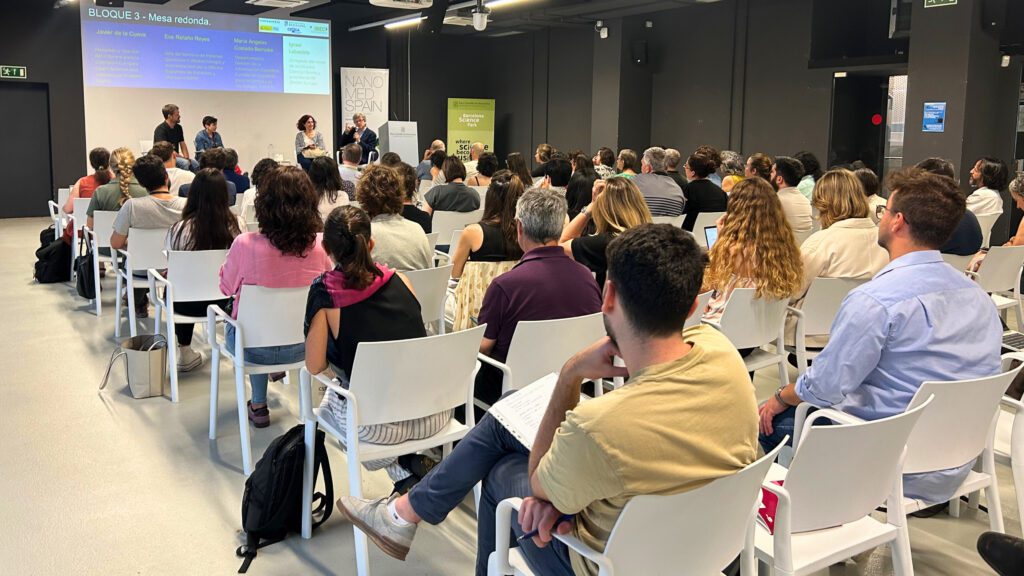
On 19 June, the Institute of Bioengineering of Catalonia (IBEC), together with the University of Barcelona (UB) and Nanomed Spain, in collaboration with CERCA and the National Research Agency (AEI), organised a conference on “Open Science and Intellectual Property” at the Parc Científic de Barcelona. The event brought together experts and professionals to discuss the synergies and possible conflicts between these two fundamental paradigms in the field of scientific and technological innovation.
The day began with the opening and presentation of the organising organisations by Teresa Sanchis, Head of Strategy at IBEC, and Ignasi Labastida, UB Rector’s Delegate for Open Science and President of SPARC Europe.
The first block of the day focused on researchers’ experiences in patenting their inventions and openly sharing scientific results, with the participation of Aurelio Ruiz Garcia from Pompeu Fabra University and Martina Giovannella from IBEC.
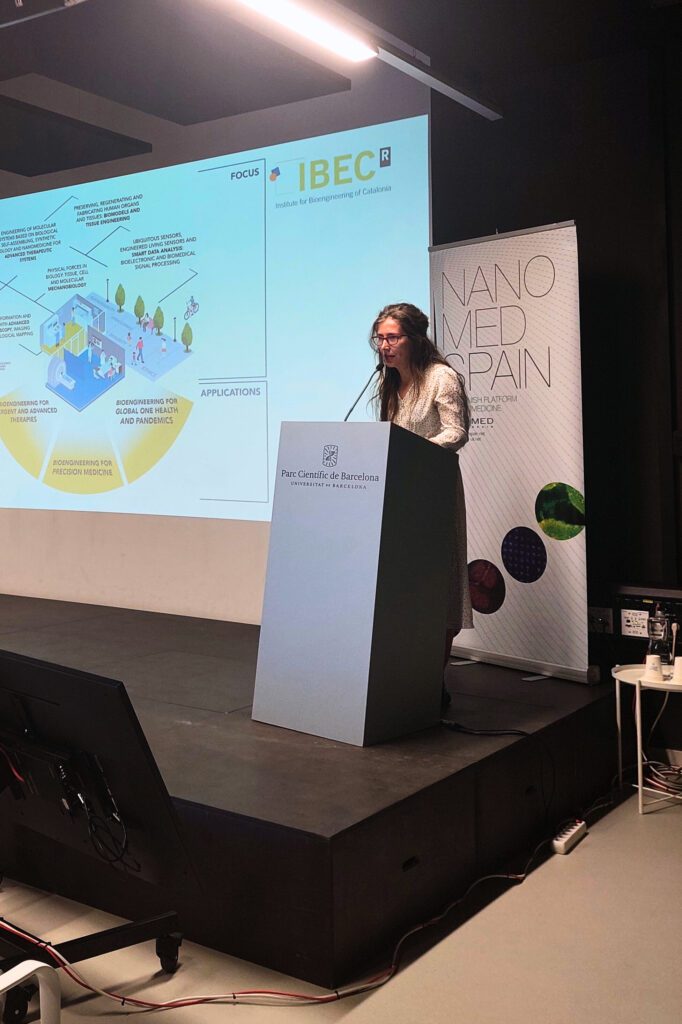
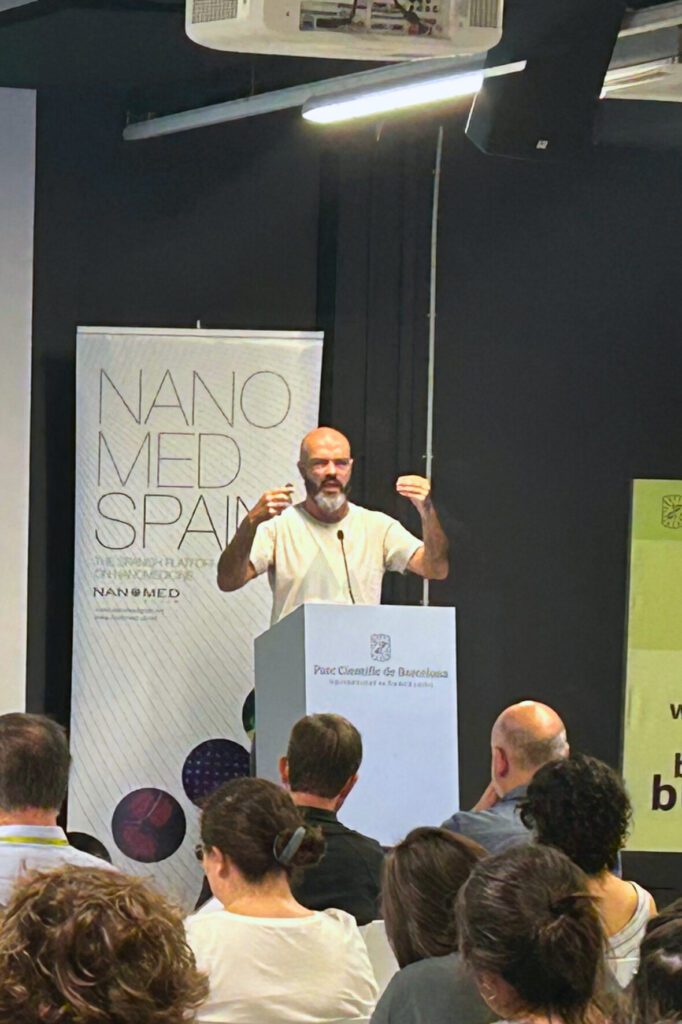
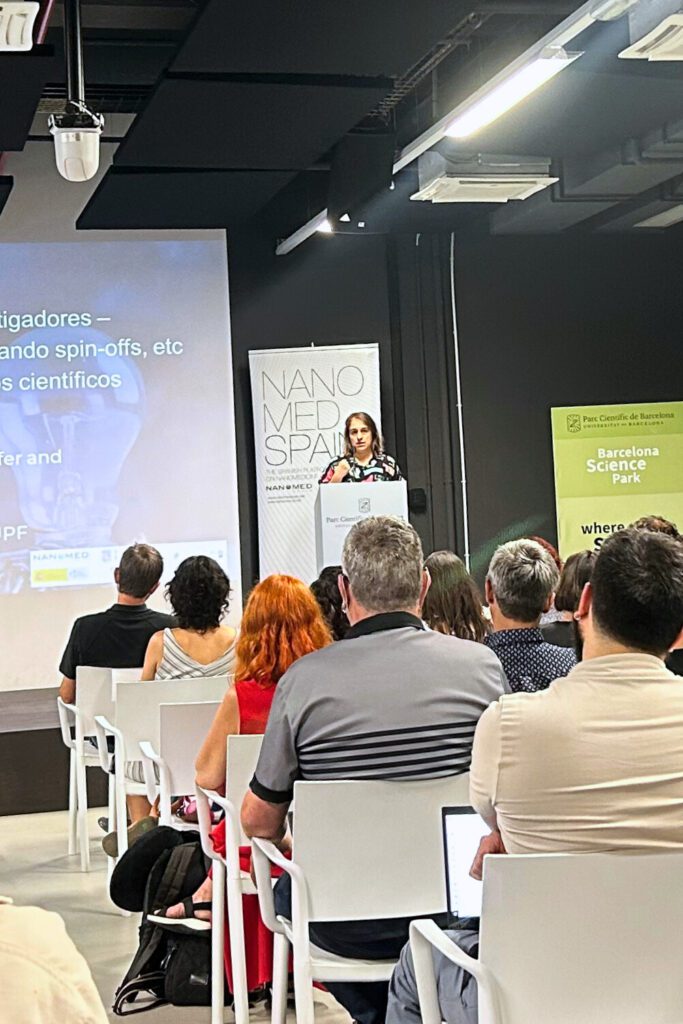
The second block offered expert views on the subject, moderated by Ignasi Labastida, with keynote speakers such as Javier de la Cueva, lawyer and co-author of the report for the European Commission on Open Science and Intellectual Property Rights; Eva Relaño Reyes, from the Spanish Patent and Trademark Office (OEPM); and María Ángeles Coslado Bernabé, from the Spanish Foundation for Science and Technology (FECYT).
The event concluded with a panel discussion in which all speakers actively participated. The day highlighted the importance of balancing the protection of intellectual property with the promotion of open science for social, scientific and economic development.
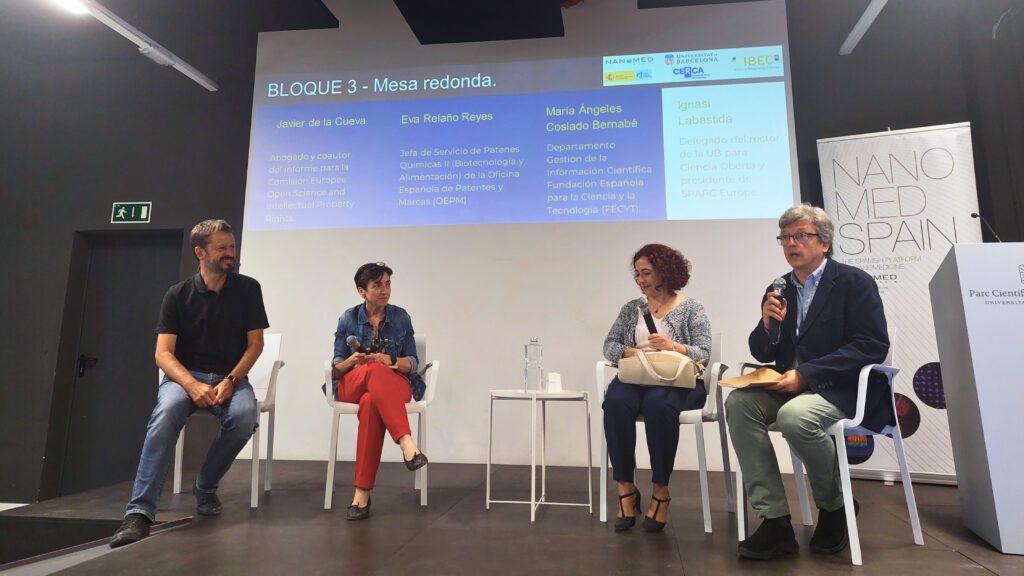
Open science and intellectual property (IP) regulation share the same fundamental goal of promoting innovation for social, scientific and economic development. However, there may be some tensions due to the fact that IP rights can be used as a basis for controlling and managing access to protected subject matter. The results of scientific research may be scholarly articles or original databases that may be protected by copyright, or inventions that may be protected by patents and other forms of intellectual property. Many open access initiatives, repositories or collaborative projects operate on the basis of clear licensing of intellectual property.





